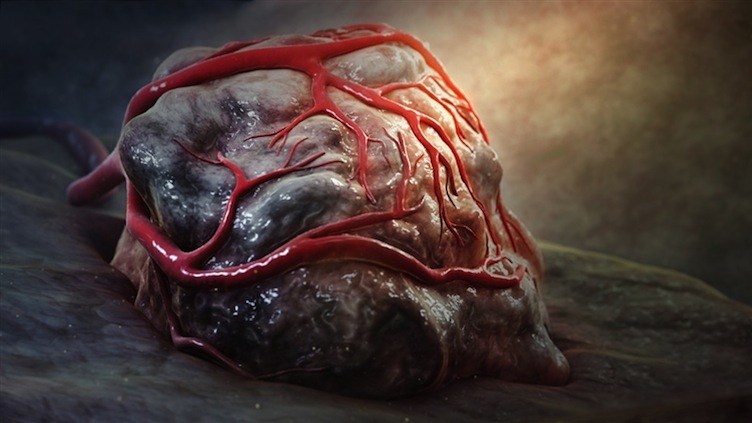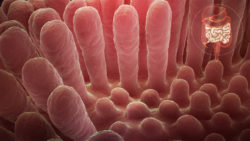Good nutritional intake is essential for cancer patients because the illness and its treatment procedures can affect the diet through altering their body’s nutrient consumption and tolerance to certain foods.
The question whether high fat diet contributes to cancer spread or suppresses it, has no sure-shot answer yet. While some studies suggest that people who live in countries with higher amounts of fat in their diet have higher rates of breast, prostate, colon, and other cancers, most thorough studies claim that fat intake increases cancer risk or that lowering fat intake reduces cancer risk, no substantial proof exists till date.

Of course, being overweight or obese is linked with an increased risk of various cancers (including breast cancer among postmenopausal women). Although some research suggests that weight loss lowers the risk of breast cancer in women post menopause and possibly other cancers, research on whether losing weight reduces cancer risk is limited.
The key is to recognise different types of fats and understand their effect on the body:
- Monounsaturated fats, found mostly in canola and olive oils, are popular for their role in lowering the risk of heart disease. They probably don’t affect cancer risk at all.
- Polyunsaturated fats include omega-3 fatty acids that are found mainly in seafood, especially fish like salmon, tuna, and mackerel. These fats can help reduce the risk of heart disease.
- Animal foods like meat and dairy products are rich in saturated fats that raise cholesterol levels, contributing to an increased risk of heart disease. So, they may influence cancer risk too.
- Trans fats are formed when unsaturated fats are made more saturated to make them firmer at room temperature, such as in stick margarine. They are found in many processed snack foods, as well as in red meats, butter, and milk and should be limited. Their effect on cancer risk is unknown, but they are known to raise cholesterol levels and increase the risk of heart disease.
Irrespective of the quantity of fat in your diet, it’s your overall dietary intake that matters to reduce your risk of cancer.
We say this because:
Claim 1:
High fat diet not only increases the number of stem cells, and therefore the number of target cells that can accumulate cancer-driving mutations, but it also increases the pool of cells that can undergo tumor formation.
Researchers in the U.S attempted to understand the relationship between obesity and colon cancer by keeping mice on a long-term high fat diet consisting of 60% fat. Described in Nature, not only did these mice gain significantly more weight in comparison to normal mice who were on regular diet, there were also marked differences in their intestines.
Most notably, there was a significant increase in the number of intestinal stem cells in the mice on a high fat diet, despite the fact that there was actually a decrease in the number of specialized cells called Paneth cells, which make up the intestinal lining.
One thing that’s important to note here is that the mice in the current study were fed with a diet that had much more fat content (60%) than a typical American diet (20-40%). Although it cannot be clearly predicted how the results apply to the human digestive system, the results are still quite applicable as they are based on the similarities between the guts of mice and men, and the known links between diet and cancer in humans.
Claim 2: Fat ‘starves’ cancer cells.
In order to survive inside the tumour, the stressed cells go into a resting phase. They then become inaccessible to radiation and chemotherapy, but can still accumulate fat droplets. The fat serves as fuel for them, when they later leave their resting phase to grow and spread.
Most of the cancer cells have a dysfunctional mitochondria, as a result of which, they cannot use oxygen to burn fuel. A cancer patient’s body, therefore, switches from burning glucose as its primary fuel to burning fat. This gives the healthy cells an ideal and preferred fuel, that lowers oxidative damage and optimizes mitochondrial function. The overall effect, consequently, is that the cancer cells are ‘starved’ while the healthy cells begin to thrive and flourish. The metabolic mitochondrial defect involves radically reducing the non-fiber carbohydrates in your diet and increasing high-quality fats.
Perhaps a better message to keep in mind is that it’s wise to consume fats selectively. Unsaturated fats like omega-6 and omega-3 fatty acids are the healthiest fats to incorporate into our diets. There is maximum evidence against saturated fats and trans fats. As a group, however, fats are not the sole culprits. Moderation is the key.
An Important Takeaway
Optimizing mitochondrial function is key for cancer prevention and treatment
Lately, it has been realised that mitochondrial dysfunction is at the core of virtually all diseases (especially cancer) and our lifestyle has everything to do with it. Hence strategies that support and optimize mitochondrial function, such as nutritional ketosis (achieved by a high-fat, low-net carb diet), intermittent fasting and high-intensity exercise are all part of the solution.
References
- Benefits of good nutrition during cancer treatment
- High Fat Diet Increases Cancer Metastasis
- Cancer and diet: What’s the connection?









